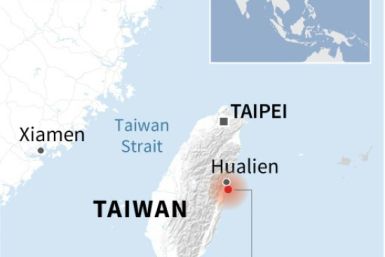Aussie Bill: No "Carte Blanche" Work Visas for Indian IT Workers; Infosys, Satyam Most Exposure in Australia
Following the trail of a recent immigration bill backed by U.S. President Barack Obama and the Senate, Australia has passed a similar bill that enforces a provision for foreign firms to advertise and prove a need for skilled workers before a visa issued.
Previously, Australian work visas were issued by clients of IT firms and the processing of visas was fairly smooth. For years, Indian outsourcing firms such as Infosys, Tata Consulting Services, Wipro, Tech Mahindra and many others have enjoyed the luxury of sending its workers abroad for training and working with its client firms abroad.
Regulation of the immigration bill spells doom for IT firms that rely on exporting their software skills. Several industries, including operational departments will be affected by the move since proponents of outsourcing say that it reduces the global competitiveness of large multinational firms that rely on the skilled talent from India.
After signing the new work visa bill, Mr Obama hinted it was a fix to address the immigration issue in America.
However, Ron Somers, president of USIBC, a top business advocacy organisation, told the Press Trust of India, "The Bill unfairly targets American companies trying to remain globally competitive by reducing their ability to contract with global IT service providers and restricting their access to the international expertise they need."
Each year, hundreds of graduates go through the coveted training process at Infosys headquarters in Bangalore where they are groomed in soft skills and hardware. IT employees with the world's top outsourcing firms like Infosys fetch a salary that is often several times that of domestic workers. Typically, an outsourcing employee might earn close to AUS$1,000, which is about ten times the average salary in India.
The IT industry was also a stable component in India's GDP, the glue that held ailing industries like retail and agriculture together during the global recession. With a decline from a 9 per cent economic growth in 2010 to a meager 5 per cent in 2012, India will do everything it can to export its IT services.
Financial analyst Nomura said in an online report that the new work programme bill will stall the hiring of IT employees and delay the provision of visas. On the other hand, it might require more preparation on the side of Indian outsourcing firms to properly assess employee terms and conditions, just as those presented to an Australian worker.
Satyam and Infosys account for 8-9 per cent of the invoices in the Aussie IT industry and would be affected the most by the visa bill.
Recently, an employee at TCS accused the firm of not making an effort to hire Australian workers, and the allegations included hiring Indian software engineers to fill its positions. However, Tata denied those charges with a statement that it complies with Australian law to hire local workers, reports The Times of India.
The new bill mimics immigration legislation taken by Canada in April to curb unemployment, doing away with the fast-track visa and stipulating similar salaries to both Canadian and work-visa employees. The U.S., Canada and Australia are also dealing with the social ramifications of illegal immigration and racial conflicts with an attack on foreign students in Australia as the most recent evidence of clashes stemming from overpopulation in densely populated areas and other socio-economic factors like high inflation and fewer resources and opportunities.






